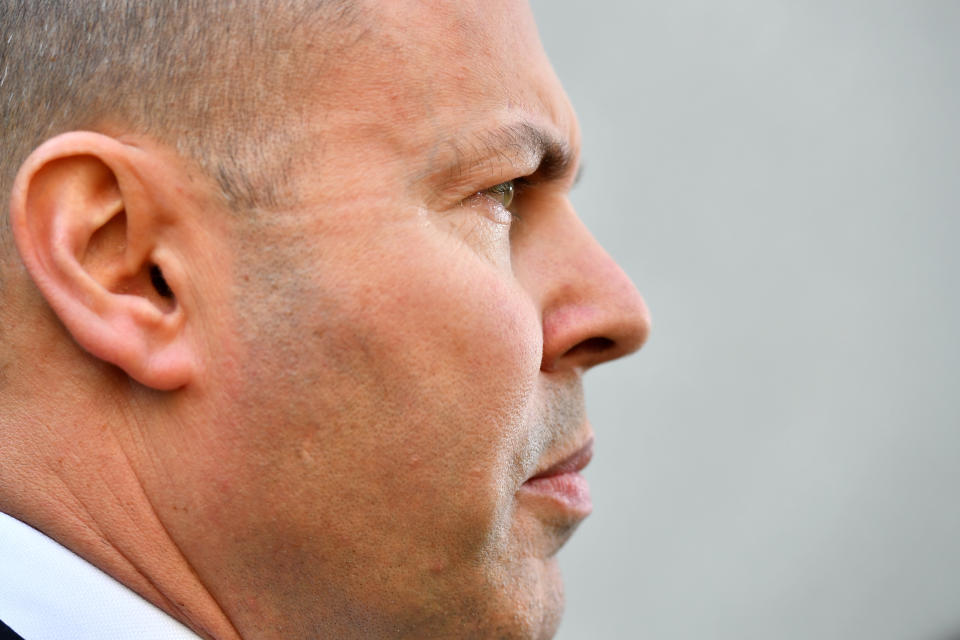What could rock Australia’s economy in 2020: Josh Frydenberg

The Australian federal treasurer has called for greater international economic cooperation amid a backdrop of “forces at play in the world” that are reminiscent of World War II.
In a speech on Monday to the Australia National University’s Australia Studies Institute, Federal Treasurer Josh Frydenberg highlighted the need to recapture “the cooperative spirit of Bretton Woods” in tackling challenges to global peace and economic prosperity.
The Bretton Woods conference, held 75 years ago in New Hampshire, US in 1944, was the birthplace of the International Monetary Fund (IMF), the World Bank and the World Trade Organisation (WTO).
Related story: ‘Precursor for war’: US Ambassador Joe Hockey slams Trump’s trade tariffs, global leadership
Related story: An open letter to Treasurer Josh Frydenberg
Related story: Australia's weak economy has been 'deliberately engineered'
Moving into the future, Frydenberg argued that these institutions would have to play a stronger role in tackling four core challenges that "Australia and the world must confront".
According to the treasurer, these are the challenges that Australia will be dealing with:
1. An ageing global population
Life expectancy has extended by 30 per cent since 1960 – and economies will buckle as a result, according to Frydenberg.
“Shifts in the world’s age structure will provide opportunities as the shape of the goods and services we consume change but will also give rise to challenges as workforces start to shrink in some nations,” he said.
Asia is both growing bigger and older. Japan and China are tackling this trend, and Australia won’t escape unscathed, either: women and older workers are staying in the workforce for longer to make ends meet.
“As this demographic shift takes hold, economies will come under pressure as the proportion of the working age population falls and the demand on health, ageing and pension systems increase.”
And as people save for retirement, global savings increases, which drives down interest rates.
“This has implications for savers, borrowers and investors and as a consequence the global economy.”
2. Global debt levels are ‘concerning’
Global debt levels will hit a high of US$188 trillion (AU$274.85 trillion), and this is a cause for concern.
“At these levels, the ability to respond to future shocks is more constrained, the impact of any future shock is more amplified and future generations will be left to deal with the consequences.”
3. Urbanisation continues to put pressure on quality of life
Urbanisation continues to further the world: more than half of the world’s population is now living in urban areas, but this is set to rise to more than two-thirds by 2050.
As a resource-rich nation, Australia has benefited from this trend, but at the same time, pressure on the environment has emerged as a symptom of urbanisation.
“These challenges, many of which have been positive, have also contributed to the impact of human-induced climate change,” Frydenberg said.
“The challenge for the future will therefore be to use technology and policy settings to ensure that continued urbanisation is sustainable.”
4. Post-cold war power play
With the US’ economic and military clout waning as it adopts a more protectionist, isolationist approach, ‘developing’ nations such as China, India and Russia are flexing their muscles.
“History tells us that as economic weight shifts, so too does strategic weight. And, as China continues to rise, competition is likely to become fiercer,” Frydenberg stated.
“From the early 1900s strategic weight shifted from Europe towards the Atlantic as the United States’ economic and military might pulled away from Europe.
“Since the 1970s, we have seen the economic weight of the world slowly but surely shift eastward and become both more dispersed and more contested.”
Europe and US’ slice of world GDP pie has reduced while China and India has grown. And it’s these shifts that are leading to a lack of trust in the institutions created some 70 years ago, according to Frydenberg.
“We have also seen a rise of protectionism and nationalism and with it a repeat of the economic consequences we have seen previously. Indeed, the current trade tensions between the US and China alone are estimated to reduce global output by 0.8 per cent or around US$700 billion by 2020.
“This is harming not just the protagonists but bystanders as well… As a result, the rules and norms that have underpinned our, and the region’s, prosperity and security are under pressure.”
What can Australia do about it?
On the home front, Australia has to run a tight ship, according to the treasurer, and trade will be crucial.
“As I have said many times before, Australia is a trading nation. Trade supports and creates jobs in Australia, allows the sharing of technology and the exchange of ideas. That’s why we’ve signed free trade agreements with our largest trading partners,” he said.
Increasing productivity and the efficiency of sectors such as agriculture, mining and manufacturing will also help, as will a “competitive and productive services sector”.
There are also opportunities in the financial, services and health sectors, too, as well as strengthening the education system.
“As the nature of work changes we need to train people in the services and digital technologies of the future. This has implications for our vocational training system and university sector,” Frydenberg noted.
He also flagged the importance of “responsible and disciplined fiscal and economic management”.
But, on the global stage he called for reform to the WTO and the IMF, arguing that the two institutions need to play a bigger role in managing the new geopolitical and economic tensions.
“The compact at Bretton Woods which was agreed seventy five years ago, provides us with a framework which is based on cooperation and coordination that has underpinned our peace and prosperity.
“We need to recapture that moment and the lessons that got us there.”
Make your money work with Yahoo Finance’s daily newsletter. Sign up here and stay on top of the latest money, news and tech news.

 Yahoo Finance
Yahoo Finance 
